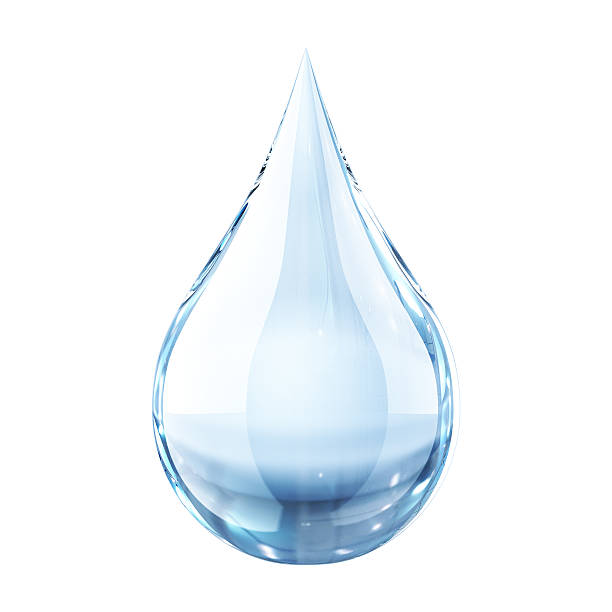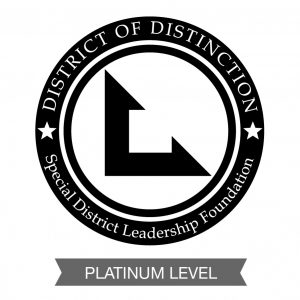Non-Functional Turf
Non-Functional Turf is grass that is decorative and not otherwise used for recreational or civic purposes.
Assembly Bill 1572 (2023) prohibits the use of potable water for the irrigation of non-functional turf located on commercial, industrial, municipal, institutional, and common interest developments (including homeowner associations). It requires specified non-residential property owners to certify their compliance with these provisions.
Examples of non-functional turf subject to the regulation
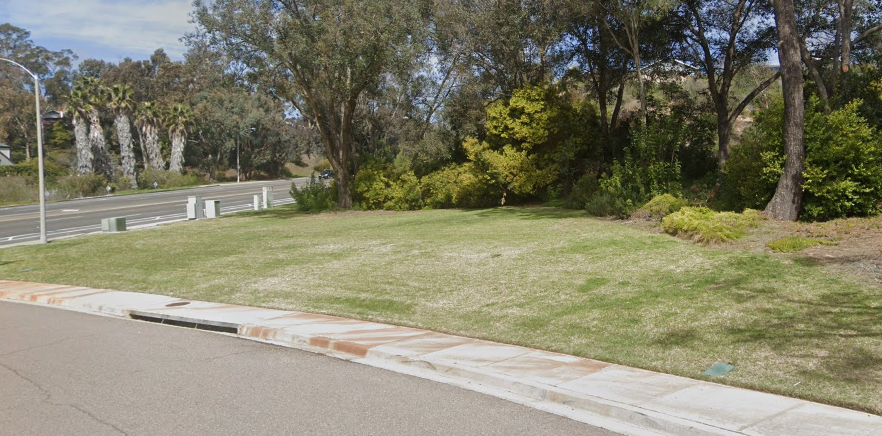 |
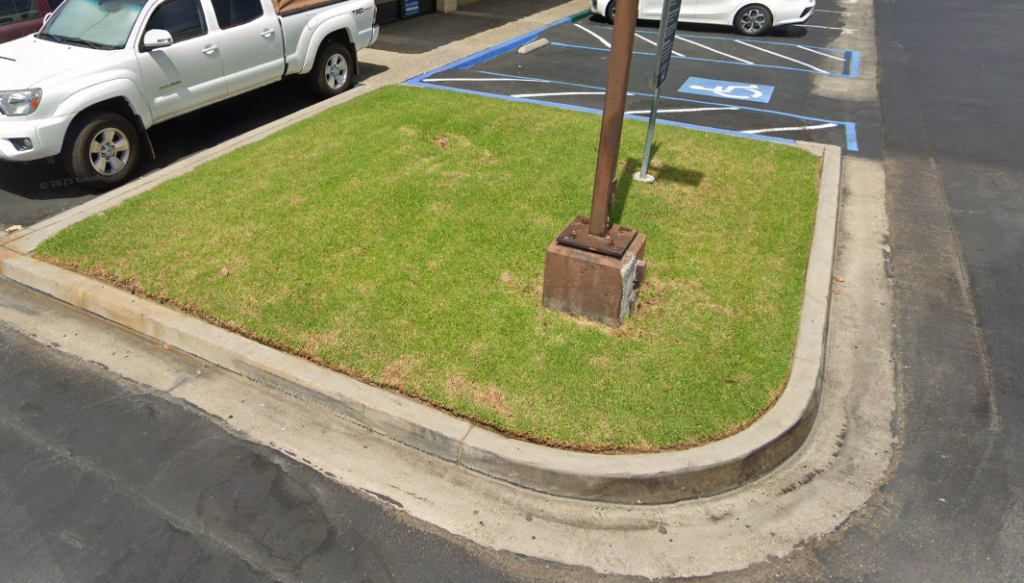 |
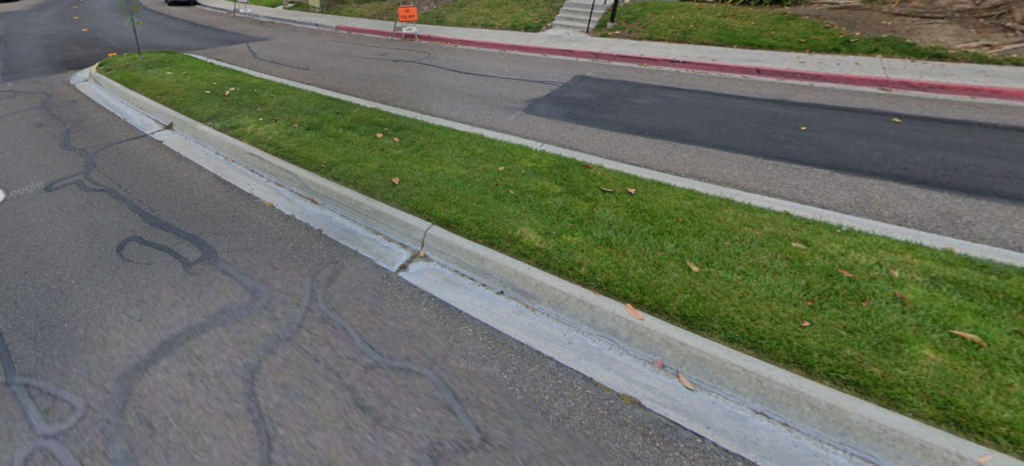 |
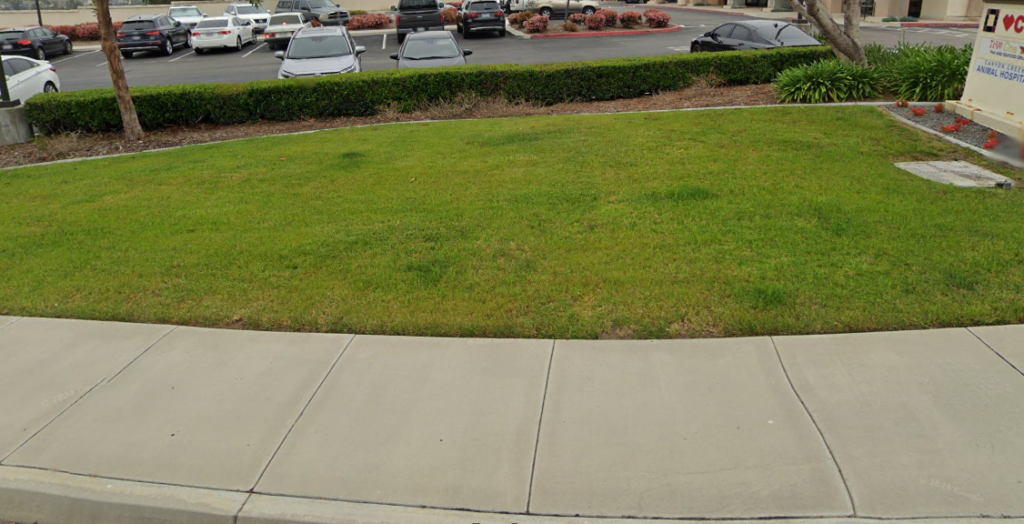 |
Examples of turf not subject to the regulation
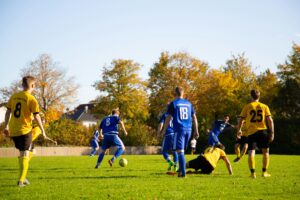 |
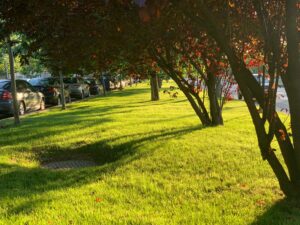 |
|
Turf used in school fields and sports fields
|
Turf in shared irrigation zone with trees and other perennial plantings
|
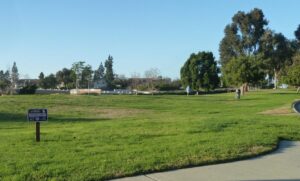 |
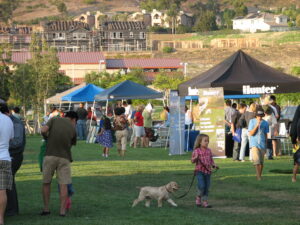 |
| Turf irrigated with non-potable water such as recycled water |
Turf in areas regularly used for civic or community events |
Compliance Schedule: AB 1572 took effect January 1, 2024. The schedule below identifies the timeframe for various customer groups to comply with the law.
| Customer Groups | Compliance Date |
| State government properties Local government properties |
January 1, 2027 |
| Commercial, industrial, and institutional properties | January 1, 2028 |
| Homeowner association common areas Mobile home parks Retirement communities |
January 1, 2029 |
AB 1572 bans the use of potable water for irrigation of decorative turf grass that is not used for recreational or civic purposes. These areas of grass are commonly found between sidewalks and streets, and in common areas of developments maintained by homeowner associations.
Properties with more than 5,000 square feet of irrigated common area that are subject to AB 1572 are required to certify to the State Water Resources Control Board, starting June 30, 2031, and every three years thereafter through 2040, that the property is in compliance.
Commercial, Industrial, and Institutional customers
AB 1572 bans the use of potable water for irrigation of decorative turf grass that is not used for recreational or civic purposes. These areas of grass are commonly found between sidewalks and streets, and in common areas of commercial developments.
Commercial, industrial, and institutional properties that are subject to AB 1572 are required to certify to the State Water Resources Control Board, starting June 30, 2030, and every three years thereafter through 2039, that the property is in compliance.
Frequently Asked Questions
OMWD customers subject to the non-functional turf ban include commercial, industrial, institutional, municipal customers, and homeowner association common areas. It does not apply to residential homes, cemeteries, school fields, sports fields, or areas regularly used for civic or community events.
Who decides if turf is functional or non-functional?
The State Water Resources Control Board has established the definition of non-functional turf, and is the reporting agency for certification and compliance forms.
How must my property comply with the law (AB 1572)?
Applicable customers must permanently discontinue watering non-functional turf by specified dates, and those with more than 5,000 square feet of irrigated common area must provide compliance reports to the SWRCB. We encourage customers to communicate with their landscape contractors to determine the best course of action for individual properties.
What is a common interest development?
A common interest development is a real property development where property owners share a common set of financial obligations, and property and easement rights established in a set of recorded restrictions (commonly referred to as Covenants, Conditions, & Restrictions or CC&Rs).
Common interest developments include:
- Homeowner Associations
- Mobile Home Parks
- Senior Communities
Will there be enforcement and/or penalties? If so, who will be responsible?
AB 1572 provides local governments with the ability to enforce the non-functional turf watering ban. California Water Code §1846 offers a potential penalty of up to $1,000 per day for violations of regulations.
What are suitable turf replacements?
Drought-tolerant plants are recommended; please visit our list of sustainable landscaping resources for more information. Other options include synthetic turf, decomposed granite, hardscapes, and rocks.
Who pays for the removal?
Compliance with AB 1572 is the responsibility of the property owner including any costs to remove non-functional turf. Rebates are available to help offset costs at socalwatersmart.
Are rebates or incentives available for the removal of non-functional turf?
Yes, rebates are available for the replacement of turf with sustainable landscaping. To qualify, the turf replacement project must include three plants per 100 square feet, a stormwater retention feature, an efficient irrigation system, and cannot include any non-permeable hardscape elements. Visit socalwatersmart for program details.
Will there be any rebate money left if we wait?
The funding provided by Metropolitan Water District is not guaranteed in the future and is available on a first-come, first-served basis. More details can be found at socalwatersmart.
What are the benefits of removing non-functional turf?
The benefits of replacing turf with a sustainable landscape include:
- Making a long-term investment that will pay off through reduced water bills and potential rebate incentives. Typically, there is between 40-60% water savings in the areas converted to more sustainable landscapes.
- Irrigating your sustainable landscape more efficiently with high-efficiency irrigation equipment.
- Increasing your landscape’s resilience to future droughts and potential watering restrictions.
- Helping California move toward a more water-efficient future.
Are there landscape architects you would recommend to assist with the non-functional turf removal?
OMWD cannot recommend any landscape architects, however bewaterwise has a list of local landscape professionals.
What if there are trees and shrubs planted in the turf area?
AB 1572 allows potable water to be used to maintain the health of trees and other perennial non-turf plantings. Turf sharing the same irrigation zone as trees or non-turf plantings would be exempt.
Will the law change if we receive lots of rain?
AB 1572 has been filed into law irrespective of future weather conditions.
Are there any exemptions to the rule?
AB 1572 prohibits the use of potable water for the irrigation of non-functional turf located on commercial, industrial, municipal, institutional, and common interest developments (including homeowner associations). The law does not apply to residential properties, cemeteries, school fields, sports fields, areas regularly used for civic or community events, areas irrigated with non-potable water such as recycled water, or when potable water irrigation of turf is necessary due to a shared irrigation zone with trees and other perennial plantings.
How does one protest the law?
AB 1572 has been filed into law. To request changes to the law, reach out to your state legislators.
Does the turf have to be removed, or can it be left and not watered?
AB 1572 states that potable water cannot be used for the irrigation of non-functional turf, but does not otherwise mandate what can and cannot be done with the landscape. Check with your local city/county ordinances or CC&Rs for guidance on landscape regulations.
Can non-potable water, such as recycled water, graywater, captured rainwater, etc., be used to irrigate non-functional turf?
Yes. AB 1572 restricts irrigation of non-functional turf only with potable water.


